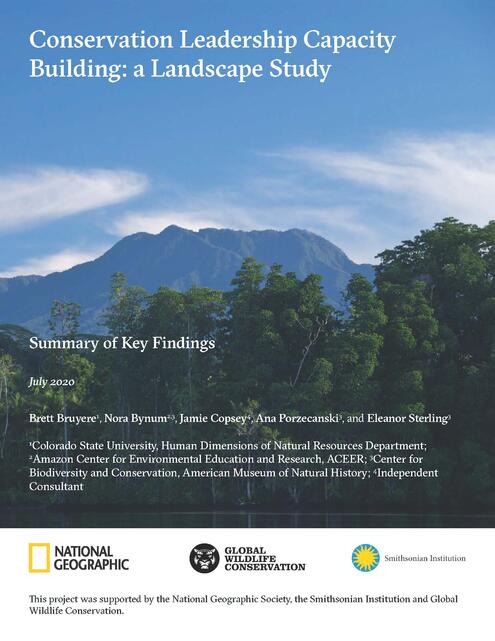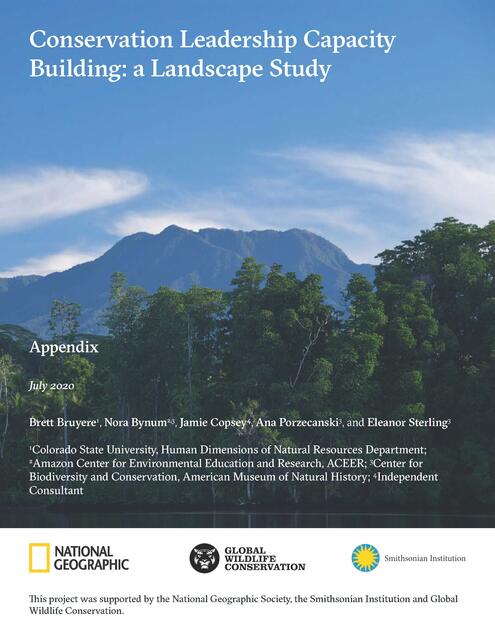Conservation Leadership Capacity Building: a Landscape Study
This report describes the key findings of a landscape study of capacity development initiatives focused on conservation leadership led by CBC experts and collaborators, and commissioned by the National Geographic Society, Global Wildlife Conservation, and the Smithsonian Institution. The goals of the study were to understand what capacity development opportunities are currently available, identify needs and gaps, and inform the development of potential future initiatives.
The study compiles information from more than 100 relevant programs and initiatives focusing primarily on training conducted in English, and found a number of unmet or insufficiently met needs, including a need for long-term support of conservation leaders, especially at mid-levels of experience. The analysis also revealed a need to foster leaders with a diverse breadth of knowledge and skills, as well as significant depth in skill development. Given the complexities of conservation, the uncertainties typically found around conservation issues, and the rapid pace of change, the sector needs leaders who are self-aware, systems thinkers, adaptive learners, conveners, network builders, collaboration brokers, effective communicators, and innovators.
Finally, there is a need for more robust evaluation of program outcomes, more cross-sectoral collaboration, and a deeper consideration of diversity, equity, inclusion, and justice in both the content and design of training programs. As part of this study, the authors conducted surveys targeting over 170 relevant actors including program staff, alumni, and partners, and led close to 60 interviews with individuals from specific programs. More details on the methods are provided in the companion Appendix.

Conservation Leadership Capacity Building: a Landscape Study
